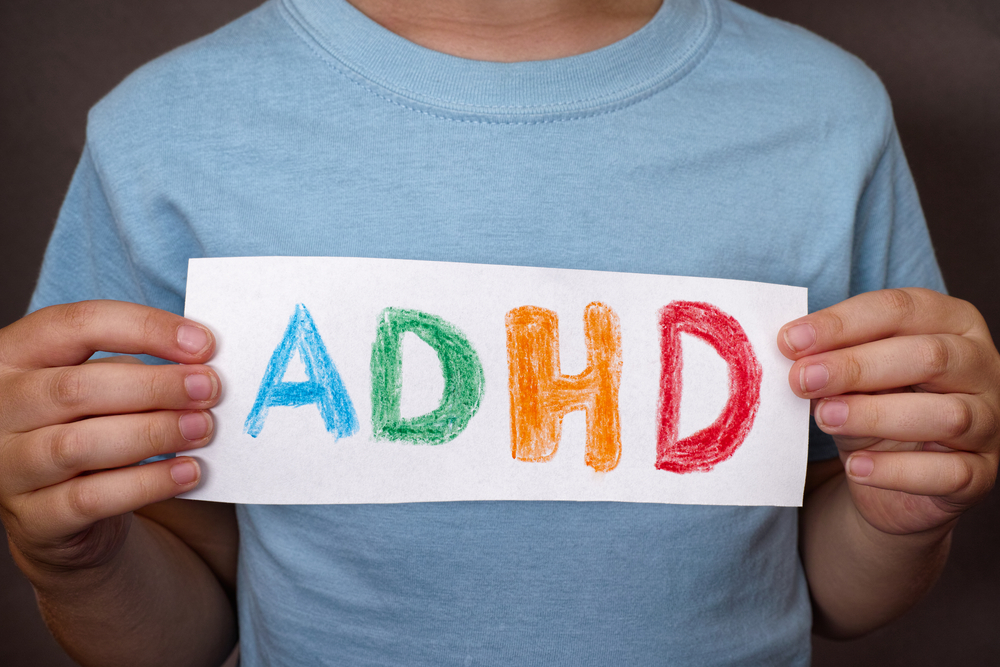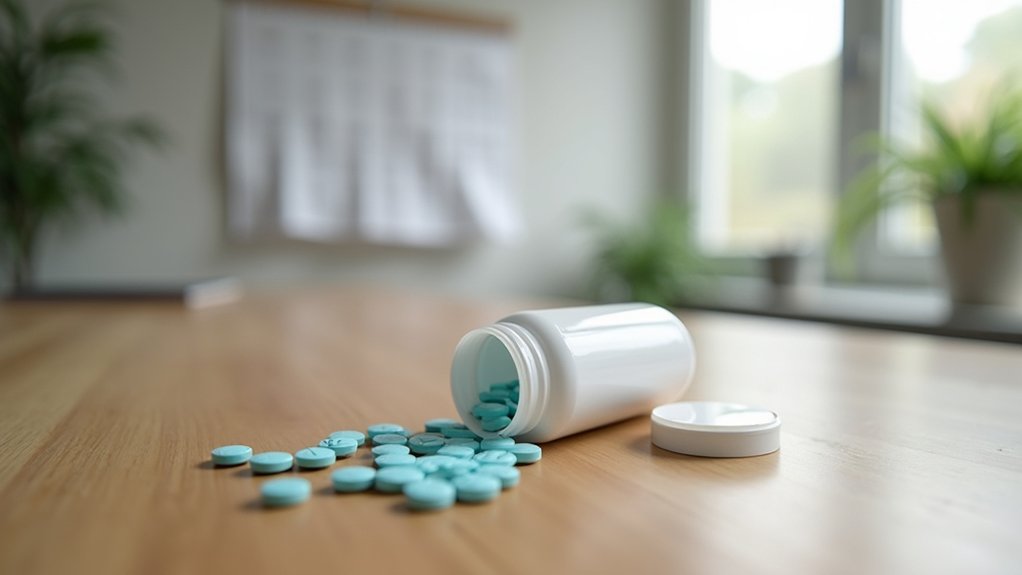A Guide for Men With ADHD and Their Loved Ones
ADHD, or Attention Deficit Hyperactivity Disorder, is a widespread condition that impacts both kids and adults. It is characterized by symptoms such as inattention, hyperactivity, and impulsivity, which can interfere with daily functioning and development. People with ADHD may find it challenging to focus on tasks, stay organized, or control their impulses. This can cause challenges in academic, professional, and personal areas of life.
October is National ADHD Awareness Month, a time dedicated to raising awareness about this condition and promoting understanding and support for those affected. According to the Centers for Disease Control and Prevention (CDC), approximately 6.1 million children in the U.S. have been diagnosed with ADHD, and it continues to be a significant concern for many families.
At Immersive Recovery, we offer specialized programs to help our clients manage and overcome the challenges of ADHD. Our comprehensive approach includes personalized therapy, skill-building activities, and support groups to ensure each person receives the care and guidance they need to thrive.
Identifying ADHD Symptoms in Adult Men
Attention Deficit Hyperactivity Disorder (ADHD) isn’t just a childhood condition; it can persist into adulthood and often goes undiagnosed. Recognizing the symptoms in adult men is crucial for seeking appropriate help and support. Some common indicators to look out for include:
- Chronic Lateness: Men with ADHD often struggle with time management, leading to frequent tardiness and missed appointments.
- Difficulty Prioritizing: Organizing tasks and deciding what to tackle first can be tough, leading to stress and inefficiency.
- Frequent Forgetfulness: Losing track of things like keys, wallets, or important tasks is common and can be frustrating.
- Emotional Struggles: Men with ADHD may experience sudden mood swings, irritability, or frustration, often without clear cause.
- Trouble Finishing Tasks: Despite good intentions, distractions and procrastination make it hard to complete tasks, even when they’re motivated.
- Inattention: Men with ADHD often find it hard to stay focused, their minds wandering easily. They may forget details or have trouble following through on projects.
- Hyperactivity: While hyperactivity in kids involves physical restlessness, men may feel a constant inner restlessness. They may have trouble relaxing or feel compelled to stay busy.
- Impulsivity: Men with ADHD may act on impulse, making quick decisions without considering consequences, which can cause problems in relationships or finances.
- Disorganization: Keeping things in order can be a challenge. Men with ADHD may struggle with messy workspaces, missed deadlines, or disorganized routines.
- Poor Time Management: They often underestimate how long tasks will take, leading to chronic lateness or rushing to meet deadlines.
- Emotional Challenges: Managing emotions can be difficult, leading to frustration or outbursts that affect relationships and daily life.
- Low Self-Esteem: Struggling with ADHD symptoms can make men feel inadequate or like they’re falling behind their peers, which may impact their confidence.
The National Institute of Mental Health reports that around 4.4% of U.S. adults have ADHD, and it is often underdiagnosed in men. Understanding these symptoms can help people seek the right support and treatment to manage their condition effectively.

ADHD in Men vs. Women: How Is ADHD Different?
ADHD affects men and women differently, which can impact diagnosis and treatment. Men often show more obvious symptoms like hyperactivity, impulsivity, and restlessness, making ADHD easier to spot, especially in childhood. In contrast, women tend to experience subtler symptoms such as inattention and disorganization, which can be mistaken for anxiety or depression. This often leads to delayed diagnoses for women, who may not be diagnosed until adulthood.
Emotionally, men may have impulsive outbursts that cause relationship issues, while women internalize their struggles, leading to anxiety, depression, and low self-esteem. Men’s ADHD often causes work and social problems, while women may feel overwhelmed by balancing multiple responsibilities. While men’s symptoms are more visible, women may develop coping strategies that mask their struggles, which can result in burnout. Recognizing these differences is essential for improving diagnosis, treatment, and support for both men and women with ADHD.

The Impact of ADHD on Men
ADHD can affect many areas of a man’s life, from relationships to work performance and even emotional health. Understanding these impacts can help men better manage their symptoms and seek the right support.
Impact on Relationships
Men with ADHD may struggle with forgetfulness, impulsiveness, and distractibility, which can cause frustration and misunderstandings in relationships. They might forget important dates or conversations, leading to feelings of neglect. Impulsivity can also lead to poor decision-making, putting a strain on romantic, family, and friend connections over time.
Poor Work or Academic Performance
ADHD often makes it difficult to stay focused, organized, and meet deadlines, leading to underperformance at work or school. Men with ADHD may find it hard to complete tasks or manage their time, which can limit career growth and satisfaction. Research shows they’re more likely to change jobs frequently or feel less satisfied with their work.
Increased Emotional Reactivity
ADHD can make it harder to regulate emotions. Men may experience mood swings, irritability, or frustration in response to stress or minor challenges, leading to conflicts in relationships or social settings.
Low Self-Esteem
Living with ADHD can contribute to feelings of inadequacy and low self-esteem. Struggles with time management or meeting expectations can cause men to compare themselves unfavorably to others, worsening their self-image.
Issues with Conflict and Criticism
Men with ADHD may react strongly to criticism, becoming defensive or upset, even when the feedback is constructive. This can make it difficult to navigate work, school, or personal relationships, adding tension and stress.
Stigma and Shame
There is often a stigma around ADHD, especially for men, who may feel embarrassed or ashamed of their diagnosis. Fear of being judged can prevent them from seeking help or fully accepting their condition, leading to denial or reluctance to open up about their struggles.
Impulsive Behaviors
Impulsivity is a common trait of ADHD. Men may make snap decisions without thinking through the consequences, leading to risky behaviors like reckless driving, overspending, or poor personal choices. These impulsive actions can have lasting negative effects on relationships and finances.
Neglect of Physical Health
Men with ADHD may neglect their physical health due to disorganization, forgetfulness, or a lack of long-term focus. They may skip appointments, overlook exercise, or fall into unhealthy habits like overeating or substance misuse, which can impact their overall well-being.
Hypersexuality or Hyposexuality
ADHD can affect sexual behavior. Some men may experience hypersexuality, feeling a constant need for sex, while others may have little interest in it. These extremes, tied to impulsivity or emotional dysregulation, can cause strain in relationships and self-esteem.
Addiction
Men with ADHD are at higher risk for addiction due to impulsivity and emotional challenges. Studies show they are more likely to develop substance use disorders, which can complicate their treatment and recovery.
Mental Illness
ADHD often coexists with other mental health conditions, including anxiety, depression, and mood disorders. The stress of managing ADHD symptoms can worsen these conditions, making it more difficult for men to manage both effectively.
ADHD can significantly affect various aspects of a man’s life, from work to relationships and mental health. Recognizing the impact of ADHD is the first step toward getting the right support, whether that’s through therapy, medication, or lifestyle changes. Understanding how ADHD manifests and seeking help can lead to better outcomes in both personal and professional life.

How to Cope With ADHD as a Male
Coping with ADHD as a man involves managing symptoms, improving communication, and building healthy habits. Be open about your ADHD with others to gain understanding and support. Set clear expectations and use tools like calendars and reminders to stay organized.
Practice mindfulness to manage impulsivity, and focus on emotional regulation through deep breathing or exercise. Prioritize self-care with regular physical activity and sleep, and seek professional help, like therapy or ADHD coaching. Strengthen relationships by being patient, listening actively, and showing appreciation. With the right strategies, men with ADHD can lead fulfilling, balanced lives.
Immersive Recovery’s Men’s Rehab Can Help
At Immersive Recovery, we understand that men with ADHD are often at higher risk for addiction, and that treating both conditions together is key to lasting recovery. Our approach starts with a thorough assessment to accurately diagnose ADHD, taking into account both symptoms and the impact they have on daily life. Once ADHD is diagnosed, we create a tailored treatment plan that may include medication to help manage symptoms like impulsivity, inattention, and emotional regulation.
Along with medication, therapy plays a vital role in managing ADHD and addiction. Our therapists work with men to develop practical strategies for coping with challenges, such as improving focus, managing emotions, and addressing impulsivity. Cognitive-behavioral therapy (CBT) helps uncover the root causes of addiction while teaching healthy coping mechanisms and life skills.
Treatment at Immersive Recovery is holistic, focusing on both the mental and emotional health of the person, ensuring they have the tools to succeed in all areas of life. We provide a supportive, non-judgmental environment where men can heal, learn, and grow.
If you’re ready to take the next step toward recovery and better mental health, reach out to Immersive Recovery today. Our team is here to help you regain control of your life with personalized care for ADHD and addiction.





